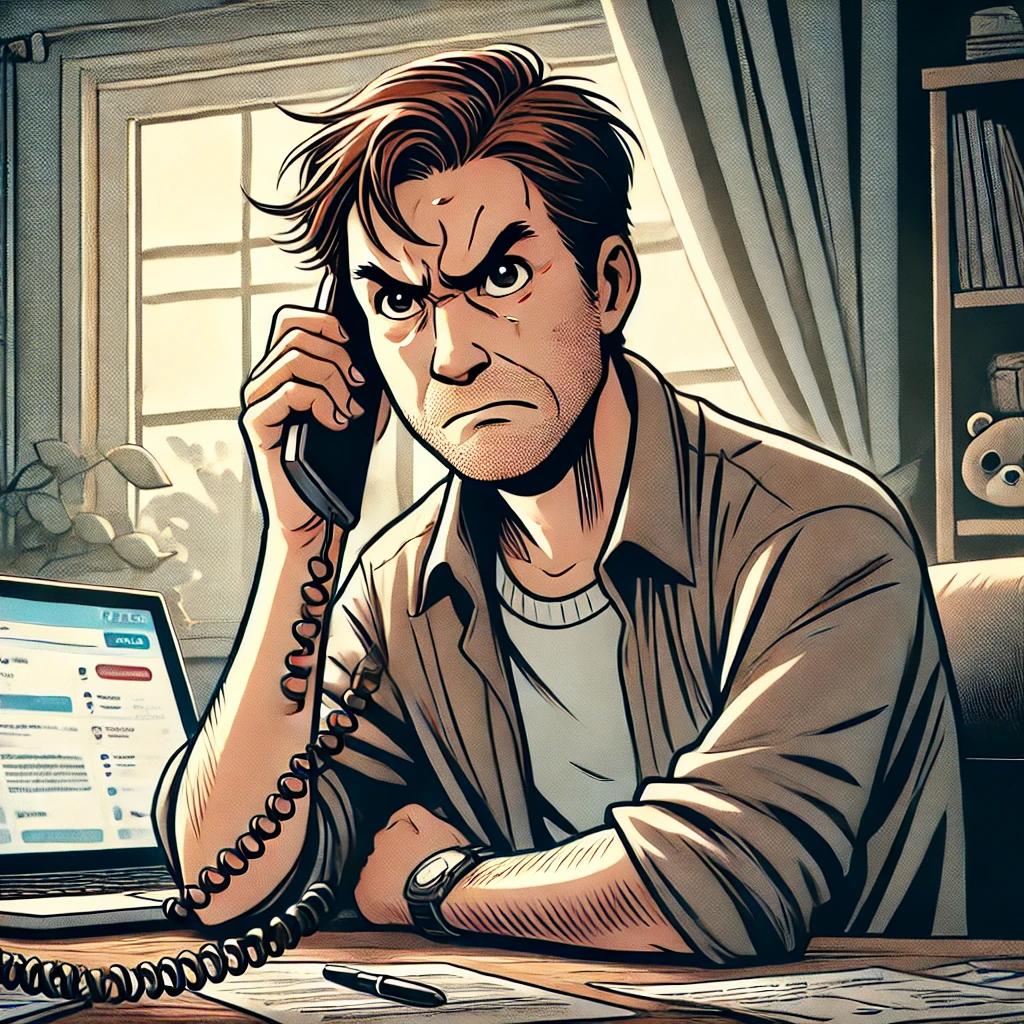Growing Up in A Call Center: Interview with Christian Montes

Operating a call center often is not someone’s dream job, but it becomes their dream job. How did you get into this space?
When you say, “the call center is in your blood”, for me it’s probably true. My parents actually started a contact center in the mid-’80s, they started doing surveys for healthcare and market research for hospitals. That evolved into the credit card boom that was the mid-80’s and 90’s, and in that time everyone was doing outbound. And I was there all the time! I was doing everything from filling vending machines to highlighting timezones on rep sheets. My babysitters were the supervisors and reps there. I got to see the first computers and automation come in because back then, everything was analog.
You can’t even say “I’ve been in this industry for x-amount of years”, you grew up in this industry and it has literally been your whole life. Since you have seen all that change, you have worked through a variety of roles. What types of roles have you had and what has been your journey to CEO?
The funny thing is that my parents had me performing all sorts of jobs. When I told them what I wanted to be they told me, “then you have to do this and this and this first..”. I first got into it in college in the IT area. We got our first Avia PBX, I learned that process, predictive dial, the IT process… but I really liked the people part of it. I wanted to be on the floor, so they said I must be on the phones first; it was all outbound. After that became a supervisor, I was the AM production coordinator, and then became the head of call center operations. We had about 1500 agents at the time and flipped from about 95% outbound to 95% inbound.
At what point did you know you wanted to start Expivia?
My original plan was to take over my parents’ organization. We were doing well, but we were working with only financial services organizations. From 2008-2010 that went from being one of the best channels to the worst. That made us go from a thriving organization to only employing about 150 people in only about a six-month timespan. We sold the company and these guys came in and a couple of months later, they pretty much fired everyone. Supervisors, IT, HR, programmers… so I did not know what to do! I thought maybe I could look for another job in another call center, but I had a lot of new ideas of my own. About 20% of my original team was with me, we went out and found some investors, which is the hardest thing I had ever done. We started Expivia in 2010 with 4 employees and we have grown to a 500-seat organization 9 years later.
How did you come up with the name “Expivia”?
When we were leaving the other organization, “Expivia” was originally going to be the name of the IT center. We wanted to make it more profitable by doing websites & development. But when we left the old company, I didn’t get any sort of severance so I just asked if I could keep that name in case I wanted to do anything with it. I already had it registered and we did not have a lot of money to create something new. So, they let me keep it. Expivia became the phoenix for me. It evolved with me. However, it does tend to get mispronounced a lot!
How did you decide you were going to write two books, let alone one?
In the beginnings when we could not afford to do much marketing, we decided the best way to get our name out there was to give away as much as we possibly could. Let’s put as much value into the industry as we can and become known in that way. We were hammering out blog posts, which turned into videos, which turned into the YouTube channel. We just wanted to throw out there as much information as possible for other people who might be starting up and are not really sure what to do. So, we took all those blog posts, white boarded them, and turned them into a chapter-by-chapter how-to.
Will a third book ever come out?
We are currently working on a 100 Games to Play in Your Call Center book. Unfortunately, it’s been on the back burner from instating our Work-From-Home, but everyone is always looking for call center games and rep engagement. The blogs we post about call center games always have the most traffic, so we know that is something people are interested in. And now because of COVID, we are expanding our horizons to work from home games as well.
You have a podcast too, was that an extension of the other content you were releasing?
There was nothing out there and I felt there was a space that needed to be filled. There were people out there that talked about customer service and customer support, but nothing specifically hard-core call center operations. The book is great, but things are constantly changing and become outdated. With the podcast, I can keep my content up to date.
Call center agents are heroes, they are the ones answering the phones for when you need your stimulus check, coronavirus information, emergency calls, etc. In a time like now, what advice would you give to agents that cannot work from home?
When coronavirus really blew up, we were contacted by Los Angeles to help support their 211 programs. People would call in asking where to get tested, if they are homeless where to get help, etc. That really opened everyone’s eyes to what customer & consumer support can really be. We had reps crying (in a good way!) because of how they were getting thanked on the other end. The people still stuck in the office are making real differences. The support and the help they are giving is really unprecedented.
You talk a lot about attitude and effort, how has that been able to be a driver during this pandemic?
It has been a weapon for us, an advantage. If you have a defined culture and stick to your pillars, even when the wind is blowing, it keeps everyone on track when it comes to the types of decisions we have to make. We are really big into analytics and sentiment reporting, and we are actually paying our reps off of sentiment. We say our culture is a sunshine attitude with an entrepreneurial mindset- which boils down to attitude and effort.
What are you still learning and struggling with from a leadership standpoint?
As an organization we are still not great with virtual training, we are good at it, but not where I want us to be. We are doing some training on-site with smaller groups and were able to socially distance really well. The most important thing is to impart our culture on new reps when they are at home- that has been a challenge for us. How do we put the Expivia brand on our employees when we’re sending them home. For me personally, I have always been hands-on. I struggle with defining my own role because I like being everywhere.
Being a call center agent is not easy, you are constantly talking to people that may not be happy. What is it that a call center can do to make sure they manage turnover?
The biggest thing that most call centers do not do is define their culture and hire off that culture. You need to find reps that fit the type of programs, clients, and organization that you are. Also, attendance is always an issue. What we do at Expivia is we have reps start at a base rate and give them incentives to maintain their schedule by offering pay raises. So theoretically a rep can make up to 4 or 5 more dollars an hour just by showing up and not even necessarily doing any more work. The other thing is maintaining a culture of fun. When you enjoy work, you go to work.
Can someone succeed without having strength in the soft skill areas?
We are finding that very few people actually have those soft skills because we are in that texting era. It is important in training that our reps are talking to callers in a different manner than they talk to their friends. Training is important all around. The tone is the message. Even if they follow the script, everyone needs to learn how to be patient and courteous with strangers on the phone. We have clients that we can communicate less formally with as well, but it always depends.
What advice would you give to centers that are trying to implement a more text-type oriented communication versus voice?
It’s a no-brainer, but there is a lot of laziness and complacency with centers saying “but this is how we’ve always done it.” Some newer centers are focusing just on text, and legacy centers are just starting to break into the digital age. You must be able to give customers the option now. Our younger reps are good and fast at typing and texting. If your reps are good at it, then your customers start to prefer it. People talk about chatbots and AI, I prefer the human, but it is nice to have a self-service model. That just cannot be your only model.
I know some people were forced to make decisions because of the pandemic, but what are some things that you have seen that were easy for you to transition?
Never before has technology played a bigger role in the call center space. Those legacy call centers that got caught with premise-based systems because they were secure got hurt really bad figuring out how to send people at home. One of the coolest things from a social media standpoint is that we filmed our meetings when we were just starting to plan how to move people to home. Being in the cloud, our reps just needed internet and they could take calls. The biggest challenge for us was maintaining communication between our reps and supervisors. We have been so successful with this new model, that when we return to normal, we are going to stay hybrid. The clients that we have that deal with financial services or HIPAA are going to return to brick and mortar, but as long as the client is okay with it, we will probably leave 40-50% of our reps at home.
Regarding your employees, what are you most proud of through this transition?
We kept the multiplier for our employees, we gave everyone the hardware they needed, if there were any reps that did not have at home internet we helped facilitate that, or if they really couldn’t work from home, we transitioned them to our 211 Program that had emergency permission to stay in-house during the pandemic. We did not have to lay anyone off, in fact, we have grown. It has been really cool to be able to help, and we instill that in our employees. We have an all-company slack channel and we are able to communicate a lot easier.
What do you do to unwind when you get home, and how has quarantine affected you and your family?
I have a seven-year-old daughter and a five-year-old son, my son is into video games and baseball so we’ll all go in the back yard and just play. I normally coach high-school basketball in town as well, and that keeps me out of trouble.
I think quarantine has been harder on my wife because she is with the kids and also homeschooling. When everyone must work from home it makes it a much more distracting environment. I have come into the office every day which, I’m not sure if that was better or worse for her, but when I get home I settle the kids. All in all, I think it really strengthened both my family and the organization.



